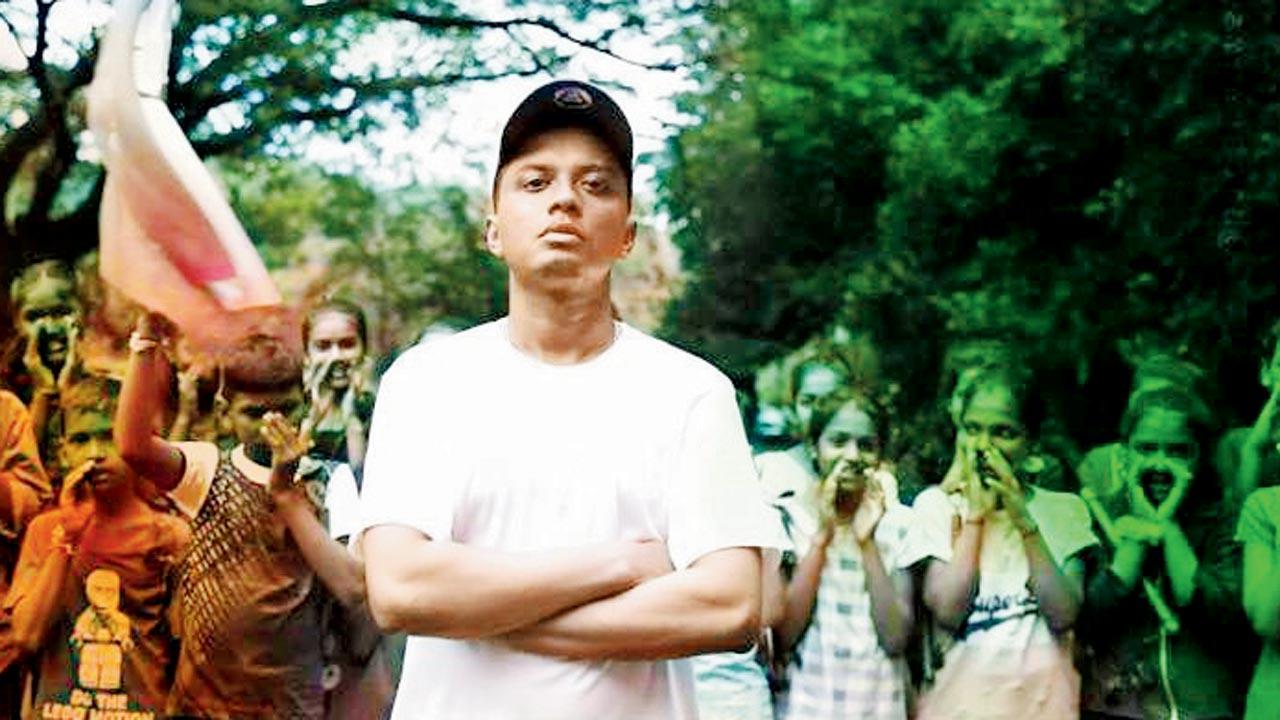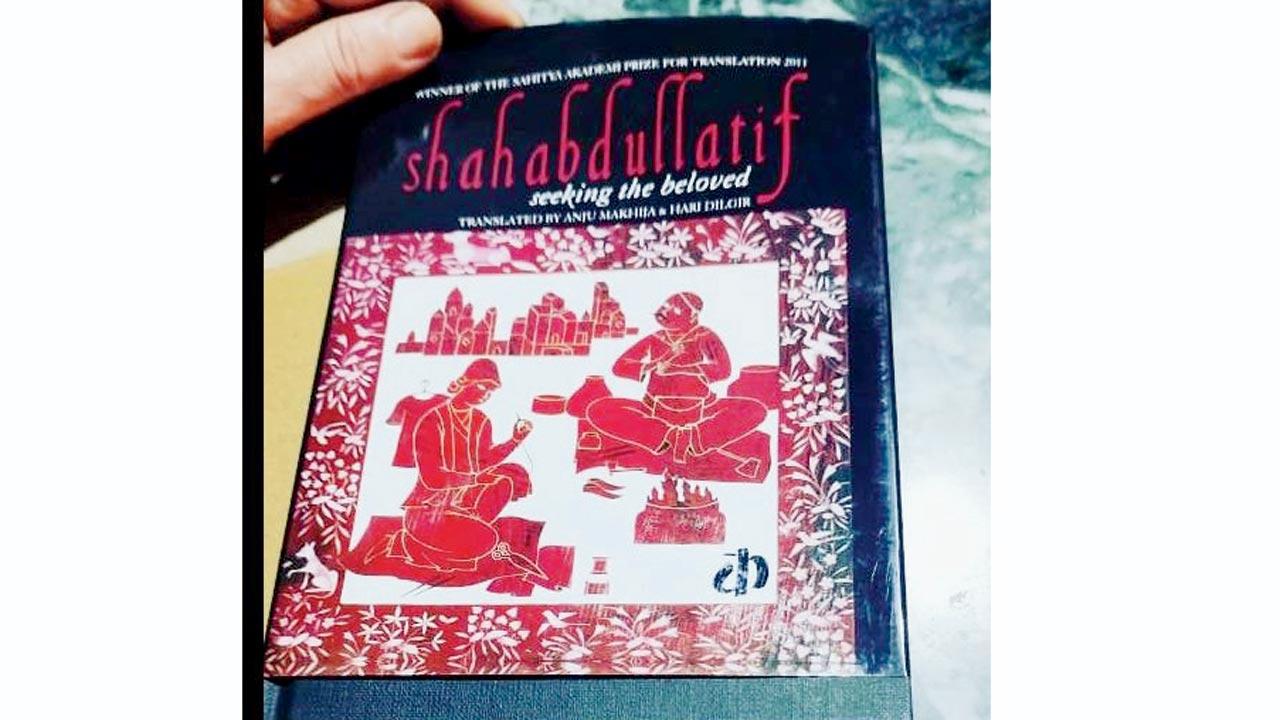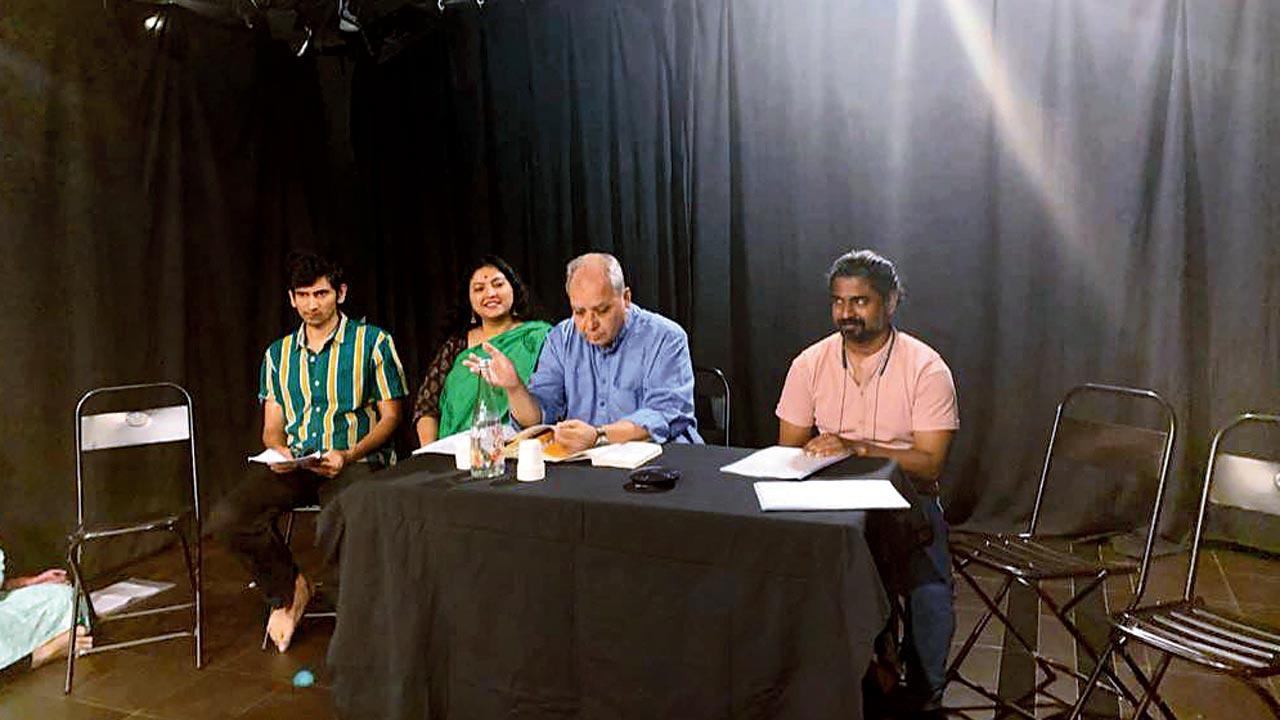The city - sliced, diced and served with a dash of sauce

Pic/Shadab Khan
The kiss of life
ADVERTISEMENT
A baby kisses a crucifix as devotees offer prayers outside Mount Mary’s Basilica during its annual fair in Bandra.
Where machines meet man
 A moment from Machine Matter, single channel video, 2017. Pic courtesy/Munem Wasif, Project 88
A moment from Machine Matter, single channel video, 2017. Pic courtesy/Munem Wasif, Project 88
Bangladeshi photographer Munem Wasif, known for communicating complex social and political issues through a humane lens, will be showcasing his works at the16th Lyon Biennale. Wasif opened up about his installation piece, Machine Matter. “In 2007, I covered unemployed jute workers in Khulna who were protesting against the shutting down of jute factories. It made me realise how important jute is as an economic crop across Bengal. Since it earns the highest amount of foreign currency, it is also called the golden fibre. I also explored the relationship humans share with machines. The government shut many mills in Bangladesh even during the pandemic.” For Wasif, these experiences added to his exhibition that is being supported by Project 88 Mumbai and Samdani Art Foundation.

Hip-hop in the forest
 A moment from Rashid Shaikh’s upcoming single, Save Aarey
A moment from Rashid Shaikh’s upcoming single, Save Aarey
The hip-hop genre has become Mumbai’s unofficial form of protest these days. Even as nature lovers are finding ways to defend the green zone of Aarey, musician Rashid Shaikh is turning the fight into artistic inspiration. The rapper’s next single, Save Aarey, which will release tomorrow is inspired by, and portrays the need for this protest. Shaikh AKA Richierich told this diarist, “This track is my way of educating people about the struggle and the importance of carrying it on.” The rapper performed the track at an August 15 gathering in the forest. “It was during that performance that I realised many people are still quite confused about the status of Aarey. I realised that a part of the city remains ignorant about the issue,” he shared. The song builds on more than just Mumbai’s problem, he pointed out. “I also included the increasing cases of cities being flooded and endangered species as a reminder that Aarey is part of the larger picture,” Shaikh concluded.
Someone is making money
 The pirated book that Anju Makhija received. Pic Courtesy/Instagram
The pirated book that Anju Makhija received. Pic Courtesy/Instagram
Poet-playwright Anju Makhija’s recent encounter with book piracy left her questioning the extent of authenticity checks that need to be implemented at various levels to prevent imposters from getting the better of authors. Participants of a book discussion group brought the inconsistency issue to her notice. “We were preparing to discuss my translated version of Shah Abdul Latif [Seeking the Beloved] and some readers wanted to read the text before the session. The title listed on Amazon has only 70 pages whereas my original book has 300 pages. The last few pages — of the 70-page copy — carries mathematical content,” Makhija, who ordered one for herself, revealed. “It was not a pre-paid order, and I sent it back. I immediately alerted the other participants so they could cancel their orders,” the Sahitya Akademi awardee said. The author has cautioned publication house Katha about it but she worries that with Sufi poetry books amassing good sales throughout, “someone somewhere is making money” the wrong way.

In Samir’s words
 Samir Soni. Pic Courtesy/Instagram
Samir Soni. Pic Courtesy/Instagram
As an introvert, Samir Soni has often found himself to be a misfit. So, the actor picked up the pen to chronicle his experiences, which led to his book, My Experiments With Silence: The Diary of an Introvert. Come Monday, Soni will discuss the title at Phoenix Palladium’s Story Club. The process of baring his soul on paper was gratifying, he told us. “It was cathartic to share my experiences with a lot of people who might feel how I did. So, there was a sense of responsibility as I feel strongly for introverts living in this extroverted life.”
Stories with a taste of the world
 A moment from Katha Kathan’s reading
A moment from Katha Kathan’s reading
Katha Kathan, a platform that aims to revive Indian language and literature, has been familiarising audiences with literary icons from a bygone era as part of their Mehfil at Prithvi Theatre. Earlier this week, the storytelling community re-read Qurratulain Hyder, whose writing style was informed by her travels. Founder Jameel Gulrays shared with this diarist, “Being born to short story and travel writer Syed Sajjad Haider Yaldram, Hyder saw the world with her father. Her Urdu writing bore influences of both English and Hindi languages.” The group staged a reading of Hyder’s Awaragard and Nazara Darmiyan Hai, and as always, it was a full house. As Katha Kathan prepares for their upcoming event on Ismat Chughtai, Gulrays recounted that Hyder and Chughtai shared an indulgent love-hate relationship.
 Subscribe today by clicking the link and stay updated with the latest news!" Click here!
Subscribe today by clicking the link and stay updated with the latest news!" Click here!







